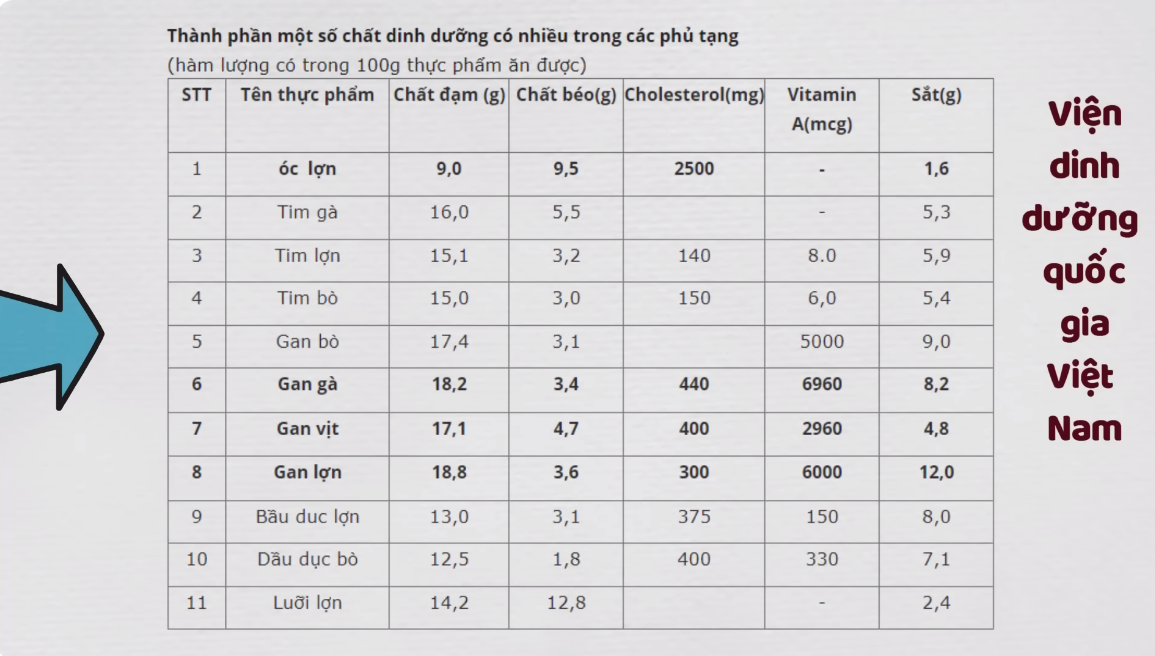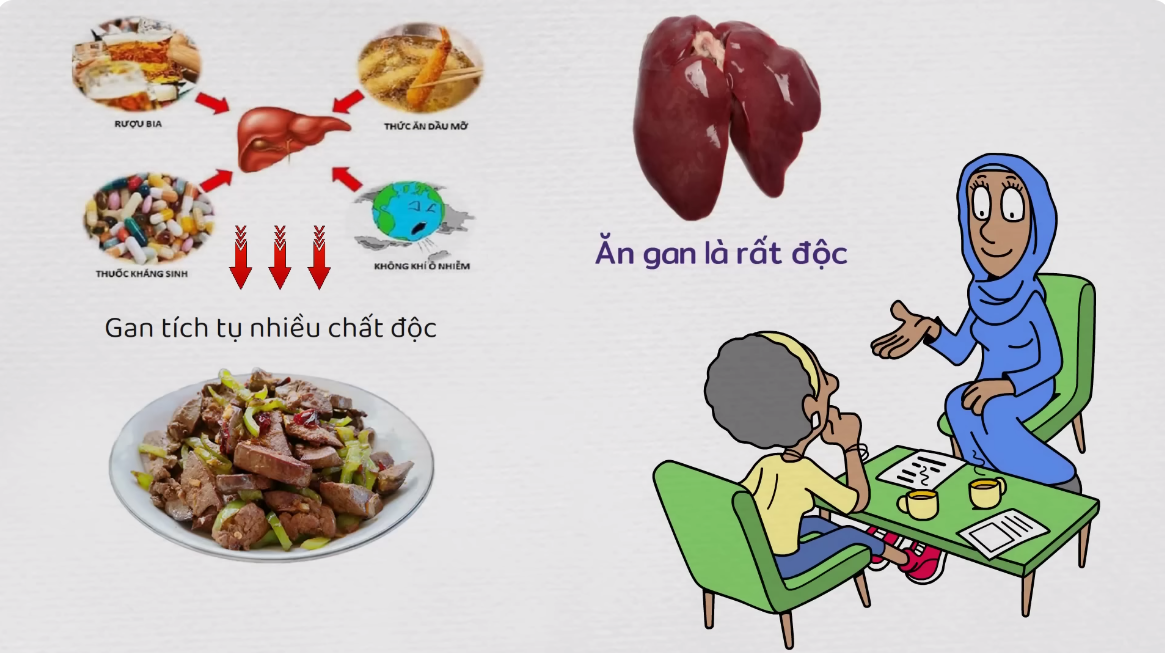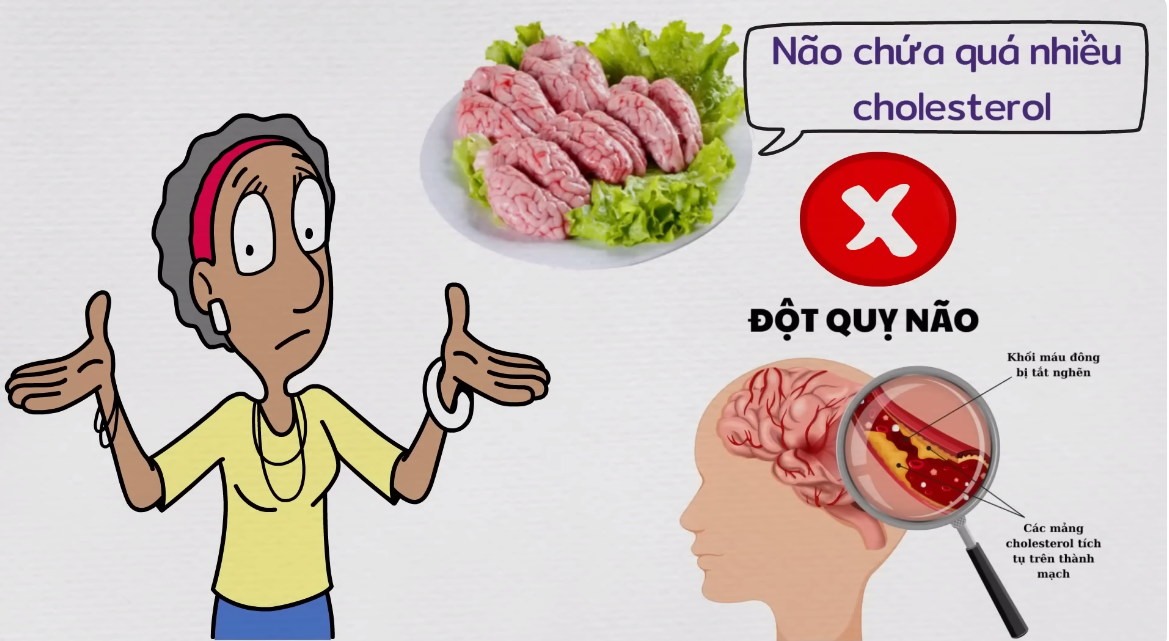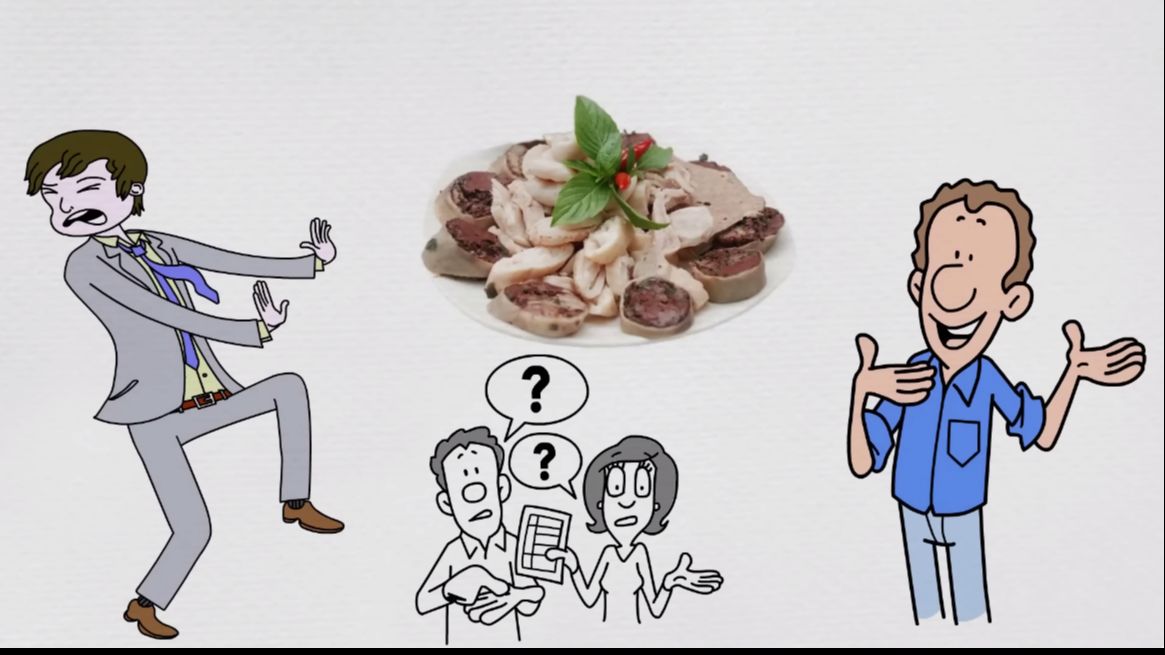Hello everyone, pig's offal dishes are very popular in Vietnam. Many people say that now that we are wealthy, there is no need to eat such things like in the old days of poverty. However, others argue that they eat it because it tastes good, not because they are poor. So in today's article, let's find out together whether eating animal offal is good or bad, and if the good taste they bring is worth the risk for the eater or not?
Let's take a look at the nutritional composition of animal offal according to the National Institute of Nutrition in Vietnam, so you can trust the reliability.

What is offal?
As you can see, they include brain, heart, liver, tongue, and in fact, we also have intestines, old intestines, and many other things in a pig's belly. Each of these has different nutritional components.
For example, the brain has the most cholesterol, more than 10 times that of the heart, while the liver has the most protein, the tongue has the most fat, the liver has the most iron, and the liver also has the most vitamins.
First, let's talk about the liver: Many people believe that eating liver is very toxic because, according to its function, the liver is responsible for detoxifying the body. All the toxins in the body accumulate in the liver, then the liver metabolizes and excretes them. So the liver accumulates many toxins, and eating liver is like eating poison. However, this is a completely wrong belief. Regarding the function of the liver, it is true that the liver helps the body detoxify, but the mistake is that the liver does not accumulate toxins inside.

Dr. Le Van Thieu from the Central Tropical Hospital shared an example. Dr. Thieu stated that the liver is an organ that helps detoxify, but toxins are not concentrated in the liver. The liver transforms toxins into non-toxic substances, then metabolizes and excretes them from the body. Therefore, saying that the liver is a place where toxins accumulate is inaccurate.
Furthermore, the liver is an organ that contains the most protein. In addition, Vitamin A and iron are abundant in the liver, which are very good for children with anemia and malnutrition. Therefore, eating liver scientifically is reasonable and good, not toxic. The liver provides iron to prevent anemia, which is good for children and pregnant women, as well as women of childbearing age. It also provides a lot of Vitamin A, which is good for eyesight, strengthens immunity, and promotes growth in children. Pregnant women and children need to be cautious about what they eat, avoiding unhealthy foods. If a doctor recommends eating liver, then it must be very good.
However, the doctor also noted that when choosing liver as food, you need to choose dark red liver, fresh without any rough spots on the surface, because rough spots indicate an unhealthy liver. Avoid buying liver from sick pigs, and when you bring it home, slice it thinly, wash it with cold water, and pat it dry with a towel.
Why do this?
This soaking process helps remove excess bile, which contains toxins from the pig's body that the liver is excreting. By removing it, the liver will be clean and safe. The recommended dosage is to eat liver 2-3 times a week, 50-70g each time for adults, and 30-50g for children.
A very interesting issue is that many people believe that eating certain organs benefits those specific organs. Eating brain is good for the brain, eating heart is good for the heart. Even a former roommate used to buy cucumbers and bananas to eat, not knowing what he wanted to benefit, but these beliefs are also wrong.
Regarding the liver, according to Dr. Huynh Hoai Phuong from the Endoscopy and Digestive Surgery Center at Tam Anh Hospital, "People who have liver problems and still buy liver to eat are making a serious mistake, even dangerous." Specifically, from a scientific perspective, to know which food is good for the body, you need to understand its nutritional components. While the liver is good, the livers of pigs, cows, and chickens have very high cholesterol levels and high fat content. People with liver diseases such as fatty liver should not consume more high-fat foods because excessive intake of animal liver with high fat content will make this organ work excessively, inadvertently adding burden to the liver and worsening the disease.
Does eating brain help develop the brain and make you smarter?

It depends on the nutritional composition and ingredients. The answer is no; on the contrary, the brain contains too much cholesterol, which is not good for people with diseases like stroke.
The belief that eating kidney benefits the kidneys is also not entirely correct, especially for people with kidney disease who need to reduce protein intake, especially those with damaged kidneys or fatty kidneys, who often have lipid metabolism disorders, high cholesterol levels, and eating a lot of kidneys will worsen the condition.
Similarly, the belief that eating heart benefits the heart is the same. People with heart disease often have high blood pressure and atherosclerosis. Eating a lot of heart will increase cholesterol levels in the blood, which is even more dangerous.
Professor Dr. Nguyen Thi Lan, former Director of the National Institute of Nutrition, has given a very important piece of advice: "People with the following diseases should not eat foods high in cholesterol, including brain, liver. These people include those with high cholesterol levels, atherosclerosis, high blood pressure, diabetes, gout, kidney disease, fatty kidneys, heart failure, overweight and obese people, and the elderly."
Cholesterol is the leading cause of heart disease and stroke. If you already have a disease and then add more cholesterol, it's like adding fuel to the fire.
In Vietnam, many people like to eat raw blood pudding, but this is actually a very dangerous dish because raw blood pudding may contain many dangerous bacteria, even toxins present in the animal's blood. It is even more dangerous when many people believe that raw blood pudding from free-range ducks and geese is clean, while raw blood pudding from industrially raised ducks is not clean, which is also incorrect.

As you know, in industrial farms, they eat feed and are injected with drugs. Of course, the meat is not as fresh, tender, or sweet as free-range animals, but free-range animals eat grass, insects, and all sorts of things, and of course, their feed contains many dangerous bacteria, many pathogens. In fact, raw blood pudding from animals living freely in the garden or fields contains more harmful pathogens than those raised in industrial farms.
In general, we see that various offal types are very nutritious, containing many important nutrients from vitamins to minerals, proteins, and other essential substances. Healthy people can eat them freely without any problems, and it can even be said to be good. However, those with the diseases mentioned in the article should not eat them, especially brain, because the brain contains too much cholesterol. To be reassured and minimize risks, the most important thing is to find a source of fresh food and avoid buying items that have a strong odor.
As in the cases where the media reported on contaminated foods imported in large quantities and soaked in chemicals to remove odors, eating such foods not only has little benefit but also poses a significant risk. It is also important to eat in moderation.
